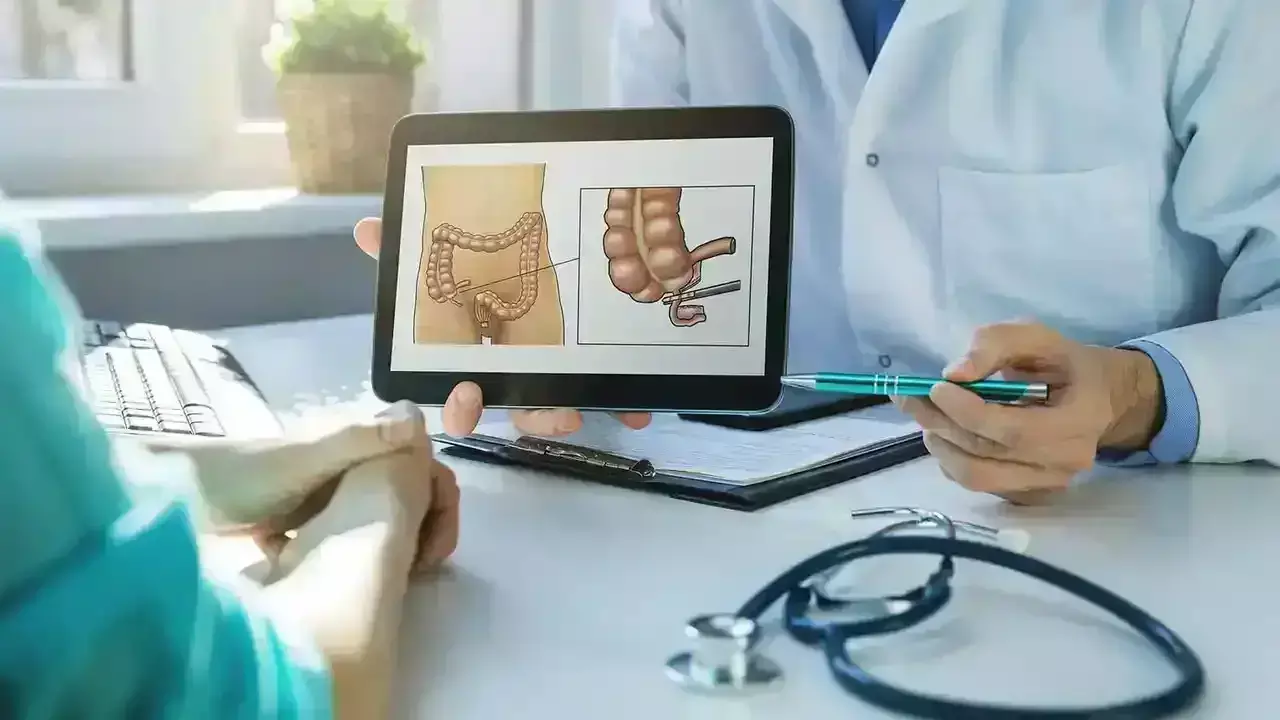- Home
- Medical news & Guidelines
- Anesthesiology
- Cardiology and CTVS
- Critical Care
- Dentistry
- Dermatology
- Diabetes and Endocrinology
- ENT
- Gastroenterology
- Medicine
- Nephrology
- Neurology
- Obstretics-Gynaecology
- Oncology
- Ophthalmology
- Orthopaedics
- Pediatrics-Neonatology
- Psychiatry
- Pulmonology
- Radiology
- Surgery
- Urology
- Laboratory Medicine
- Diet
- Nursing
- Paramedical
- Physiotherapy
- Health news
- Fact Check
- Bone Health Fact Check
- Brain Health Fact Check
- Cancer Related Fact Check
- Child Care Fact Check
- Dental and oral health fact check
- Diabetes and metabolic health fact check
- Diet and Nutrition Fact Check
- Eye and ENT Care Fact Check
- Fitness fact check
- Gut health fact check
- Heart health fact check
- Kidney health fact check
- Medical education fact check
- Men's health fact check
- Respiratory fact check
- Skin and hair care fact check
- Vaccine and Immunization fact check
- Women's health fact check
- AYUSH
- State News
- Andaman and Nicobar Islands
- Andhra Pradesh
- Arunachal Pradesh
- Assam
- Bihar
- Chandigarh
- Chattisgarh
- Dadra and Nagar Haveli
- Daman and Diu
- Delhi
- Goa
- Gujarat
- Haryana
- Himachal Pradesh
- Jammu & Kashmir
- Jharkhand
- Karnataka
- Kerala
- Ladakh
- Lakshadweep
- Madhya Pradesh
- Maharashtra
- Manipur
- Meghalaya
- Mizoram
- Nagaland
- Odisha
- Puducherry
- Punjab
- Rajasthan
- Sikkim
- Tamil Nadu
- Telangana
- Tripura
- Uttar Pradesh
- Uttrakhand
- West Bengal
- Medical Education
- Industry
Appendectomy Significantly Reduces Relapse in Ulcerative Colitis Patients, finds study

Researchers have found in a randomized superiority trial that appendectomy, when combined with standard medical therapy, significantly reduced 1-year relapse rates in ulcerative colitis patients in remission compared to medical therapy alone. In the intention-to-treat analysis of nearly 200 patients, the relapse rate was 36% in the appendectomy group versus 56% in the control group (RR 0.65, 95% CI 0.47–0.89, P=0.005; adjusted P=0.002).
The appendix might have an immunomodulatory role in ulcerative colitis. Appendicectomy has been suggested as a potentially therapeutic intervention to maintain remission in ulcerative colitis. We aimed to evaluate the clinical effectiveness of laparoscopic appendicectomy in maintaining remission in patients with ulcerative colitis.
They did a pragmatic, open-label, international, randomised controlled superiority trial in 22 centres across the Netherlands, Ireland, and the UK. Patients with established ulcerative colitis who were in remission but had been treated for disease relapse within the preceding 12 months were randomly assigned (1:1) to undergo appendicectomy plus continued maintenance medical therapy (intervention group) or to continue maintenance medical therapy alone (control group). Randomisation was done with a central, computer-generated allocation concealment, stratified by disease extent.
Patients and treating physicians were unmasked to group allocation. The prespecified primary outcome was the proportion of patients with a disease relapse within 1 year, predefined as a total Mayo score of 5 or higher with an endoscopic subscore of 2 or 3, or, in absence of endoscopy, based on a centrally independent masked review by a critical event committee as an exacerbation of abdominal symptoms (eg, elevated stool frequency subscore of ≥1 point from baseline) with a rectal bleeding subscore of ≥1 or faecal calprotectin level above 150 μg/g or necessitating treatment intensification other than mesalazine. Analyses were done on an intention-to-treat principle.
Findings: Between Sept 20, 2012, and Sept 21, 2022, 1386 patients were screened. 201 patients were randomly assigned to the appendicectomy group (n=101) or the control group (n=100). After exclusion of four patients due to eligibility violations (three had active disease and one received biological agents at time of randomisation), 99 patients in the appendicectomy group and 98 patients in the control group were included in the intention-to-treat analyses. The 1-year relapse rate was significantly lower in the appendicectomy group than in the control group (36 [36%] of 99 patients vs 55 [56%] of 98 patients; relative risk 0·65 [95% CI 0·47–0·89]; p=0·005; adjusted p=0·002). Adverse events occurred in 11 (11%) of 96 patients in the appendicectomy group and 10 (10%) of 101 patients in the control group.
The most frequently reported adverse events were postoperative temporary self-limiting abdominal pain in the appendicectomy group (three [3%] patients) and skin rash in the control group (three [3%] patients). Two cases (2%) of low-grade appendiceal mucinous neoplasm were incidentally found in resected appendix specimens in the appendicectomy group. Serious adverse events occurred in two (2%) of 96 patients who underwent appendicectomy and none in the control group. There were no deaths. Appendicectomy is superior to standard medical therapy alone in maintaining remission in patients with ulcerative colitis.
Reference:
Appendicectomy plus standard medical therapy versus standard medical therapy alone for maintenance of remission in ulcerative colitis (ACCURE): a pragmatic, open-label, international, randomised trial. Acherman, Yair I Z et al. The Lancet Gastroenterology & Hepatology, Volume 0, Issue 0
Dr. Shravani Dali has completed her BDS from Pravara institute of medical sciences, loni. Following which she extensively worked in the healthcare sector for 2+ years. She has been actively involved in writing blogs in field of health and wellness. Currently she is pursuing her Masters of public health-health administration from Tata institute of social sciences. She can be contacted at editorial@medicaldialogues.in.
Dr Kamal Kant Kohli-MBBS, DTCD- a chest specialist with more than 30 years of practice and a flair for writing clinical articles, Dr Kamal Kant Kohli joined Medical Dialogues as a Chief Editor of Medical News. Besides writing articles, as an editor, he proofreads and verifies all the medical content published on Medical Dialogues including those coming from journals, studies,medical conferences,guidelines etc. Email: drkohli@medicaldialogues.in. Contact no. 011-43720751


